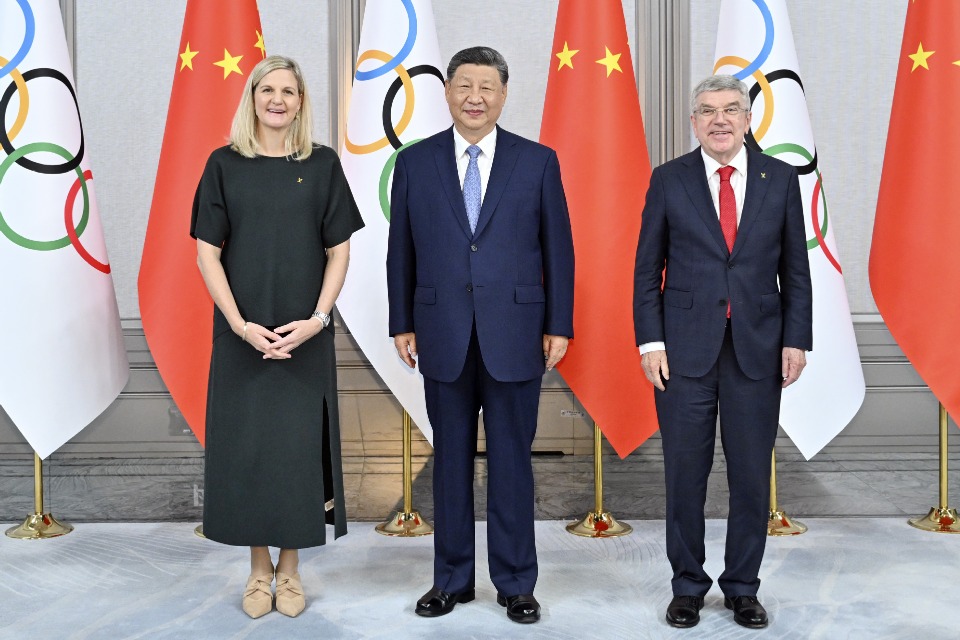Boys shouldn't embrace girlish traits in pop culture


Very few, if any, can deny that we used to be (or still are) crazy about "heroes". Thanks to the stories from China's revolutionary history in the school syllabus, people of my generation idolized patriots who sacrificed their lives in the fight against invaders and colonial powers.
We were so impressed by the sacrifices of the war heroes that on reaching the age of 18, we — all the 20 boys in my class — applied to join the People's Liberation Army. To our great disappointment, all except one were disqualified after failing the "eye test". The only lucky one later became a jet fighter pilot and a letter he wrote to our teacher was read in front of all teachers and students of the school.
After the resumption of the college entrance examination in the late 1970s after a gap of 10 years, a few of us who passed the exam suddenly became the target of envy — only 4.8 percent of the examinees got admission in college. As the new social stars, many new college entrants pinned their school emblems on their chest in public places, which prompted many youngsters to seek success tips from them.
The reform and opening-up launched in the late 1970s introduced to China not only European soccer leagues and NBA but also pop stars such as Michael Jackson and Teresa Teng. After that the "Japanese wave" swept across China, which later was followed by the "Korean wave", making sushi and kimchi popular in China along with the Japanese and Korean languages, dresses and plastic surgery.
For decades, there have been discussions on the effects of the Japanese and Korean "waves" on Chinese youths. Those who support the introduction of foreign cultural elements say they have enriched our lives and their negative aspects can be eliminated through government measures. And those against view it as a conspiracy and cultural invasion, saying imported culture will ruin our young generation.
I used to have an open attitude toward such "waves", thinking why shouldn't Chinese youths take a liking to sushi and kimchi if they don't hurt others? The foreign sports and performing artists are among the best in the world and their fans in China should not be blamed for enjoying their performances. And if someone wants to improve their appearance by undergoing plastic surgery, well, it's his or her own problem.
But I changed my mind when I saw some groups of boys swinging their hips seductively on a public TV channel show. Wearing heavy makeup and jewelry and dressed up like "metrosexuals", their performance, to my puzzlement, drew wild cheers from the young audience. The performance of the boys aged between 15 and 18 years, despite the adulation of the audience, left me distraught.
After doing some research, I realized the effeminate culture was probably imported from neighboring countries, that the boys were mostly contracted actors associated with certain performing arts companies that probably picked up the boys when they were very young and trained them to act womanly and appear attractive to female college and middle school students. The boys, thanks to their appearance and performance, have become stars in their own right each with millions of fans.
To my great relief, the public opinion this time is largely against such metrosexual performers. Such effeminate behavior may be contrary to traditional Chinese values, but have our youths chosen this path because we failed to provide them with proper education? Or have the youths fallen victim to cultural commercialization?
Responding to public concerns, the government has banned such youths from appearing on public platforms. But that is not the end of the story.
Some of those boys have shifted from TV programs to internet platforms, with some public media outlets highlighting the need to prevent such youngsters from crossing the redline.
We need to promote a healthy culture, complete with the virtues of serving the country and promoting the rich traditional Chinese culture, so that youths work for greater common good, and thus prevent the younger generation from going astray.

The author is former deputy editor-in-chief of China Daily.
kangbing@chinadaily.com.cn


































